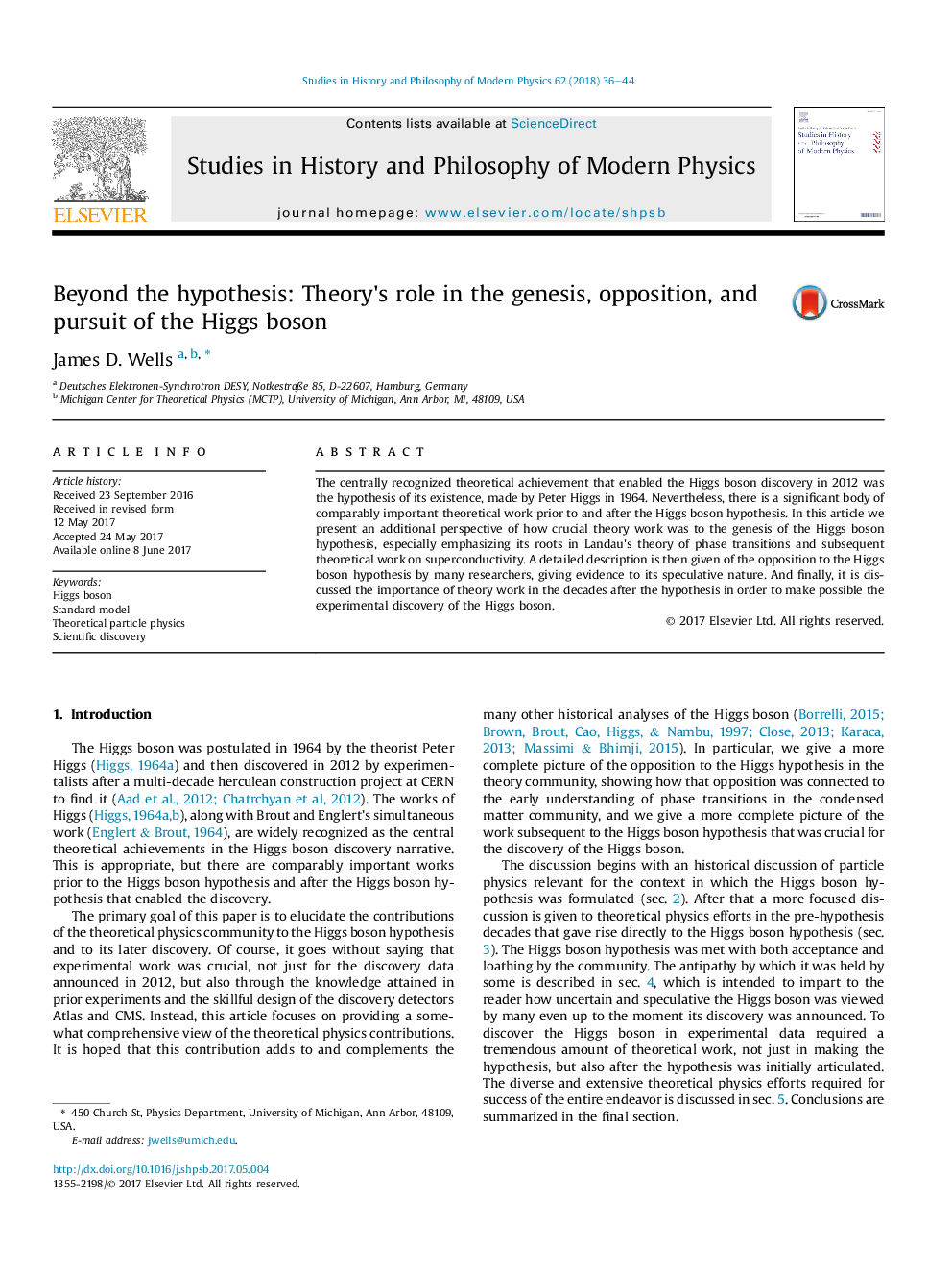| Article ID | Journal | Published Year | Pages | File Type |
|---|---|---|---|---|
| 7551847 | Studies in History and Philosophy of Science Part B: Studies in History and Philosophy of Modern Physics | 2018 | 9 Pages |
Abstract
The centrally recognized theoretical achievement that enabled the Higgs boson discovery in 2012 was the hypothesis of its existence, made by Peter Higgs in 1964. Nevertheless, there is a significant body of comparably important theoretical work prior to and after the Higgs boson hypothesis. In this article we present an additional perspective of how crucial theory work was to the genesis of the Higgs boson hypothesis, especially emphasizing its roots in Landau's theory of phase transitions and subsequent theoretical work on superconductivity. A detailed description is then given of the opposition to the Higgs boson hypothesis by many researchers, giving evidence to its speculative nature. And finally, it is discussed the importance of theory work in the decades after the hypothesis in order to make possible the experimental discovery of the Higgs boson.
Related Topics
Physical Sciences and Engineering
Physics and Astronomy
Physics and Astronomy (General)
Authors
James D. Wells,
